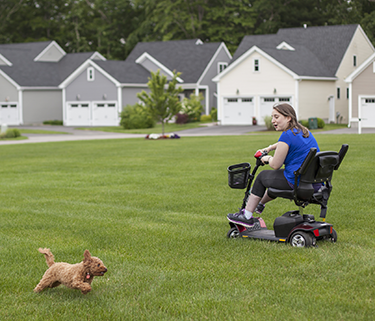The Arc’s Letter of Support for DOJ Investigation of Arnaldo Rios Case
Charles Kinsey, a direct support professional for people with intellectual and developmental disabilities, was shot in a situation involving one of the individuals he served, Arnaldo Rios. Following this incident in North Miami, Florida, our network was shocked by how this situation needlessly escalated. Then the news broke that the officer involved in this shooting had the intention of shooting Mr. Rios.
In the aftermath, Mr. Rios has been institutionalized in a psychiatric unit. Below is The Arc’s letter to the Department of Justice supporting an investigation of this case. You can also read our statement here.
Rebecca Bond
Chief
Disability Rights Section – 1425 NYAV
Civil Rights Division
U.S. Department of Justice
950 Pennsylvania Avenue, NW
Washington, D.C. 20530
Re: The Arc’s Letter of Support for DOJ Investigation of Arnaldo Rios Case
Dear Disability Rights Section Chief Bond:
I am writing to offer the support of The Arc of the United States (The Arc) for a letter from Matthew Dietz, the attorney for Arnaldo Rios, calling for the U.S. Department of Justice (DOJ) to investigate the North Miami Police Department and the State of Florida.
Mr. Rios is an individual with autism who was recently institutionalized in a psychiatric unit following the police’s shooting of his behavioral therapist, Charles Kinsey. Following the shooting, the representative for the officer involved stated to the media that the intention was not to shoot Mr. Kinsey, but to shoot Mr. Rios. Mr. Dietz’s letter, attached here for your reference, calls for the Department of Justice to open an investigation of the North Miami Police Department for its actions and statements involving Mr. Rios and Mr. Kinsey as well as the State of Florida for its failure to provide appropriate community placement to Mr. Rios following the incident. The Arc strongly agrees that such an investigation is necessary and warranted.
With nearly 700 state and local chapters nationwide, The Arc is the largest national community-based organization advocating for and serving people with intellectual and developmental disabilities (IDD) and their families. The Arc promotes and protects the civil and human rights of people with IDD and actively supports their full inclusion and participation in the community throughout their lifetimes. Through our National Center on Criminal Justice and Disability, we seek to build the capacity of the criminal justice system to respond to gaps in existing services for people with IDD, ensure appropriate accommodations are provided via the Americans with Disabilities Act, and provide necessary trainings for law enforcement, attorneys, and judges on how to recognize various intellectual and developmental disabilities and how to appropriately interact with individuals with such disabilities.
When individuals with IDD become involved in the criminal justice system as victims, witnesses, suspects, defendants, or incarcerated individuals, they face fear, prejudice, and lack of understanding. As was apparent in this case, law enforcement personnel often lack accurate and appropriate knowledge to apply standards of due process in a manner that provides justice for individuals with IDD. In addition to improving the quality and prevalence of police training, The Arc supports a community-based crisis management system model, which includes time-based protocols for in-home responses and options for acute placement and is proven to reduce critical incidents, failed placements, and re-admission to psychiatric facilities for community-based clients.
Further, The Arc’s position, strongly supported by Olmstead v. L.C., 527 U.S. 581 (1999), is that individuals with IDD deserve the opportunity for a full life in their community where they can live, learn, work, and socialize. To achieve this goal, they need a comprehensive, person-centered and directed, national system of appropriate high quality long-term supports and services, with a reliable and immediately accessible funding source, including Medicaid, and a well-trained, fairly compensated workforce of providers and direct support professionals. The prevalence of people waiting for services and supports is an unacceptable national crisis. It is not only a choice but also a basic civil right that individuals have adequate and appropriate supports and services needed for them to live in the community. Services must be delivered promptly in the most integrated setting and with sufficient quality and quantity to meet individual needs.
Neither Mr. Rios nor Mr. Kinsey did anything to warrant the police shooting that occurred. Thankfully, Mr. Kinsey survived the shooting and has been released from the hospital. Unfortunately, due to untreated trauma and a severe lack of appropriate community placements, Mr. Rios remains institutionalized in a psychiatric unit, isolated from the community.
The Arc is deeply troubled by the actions of the North Miami Police Department against Mr. Rios and Mr. Kinsey, the State of Florida’s failure to find community placements for individuals with IDD who require intensive behavioral therapy, and its policy of reimbursing institutional placements at significantly higher rates than community placements. In light of the above, we urge the Department of Justice to investigate the actions of both the North Miami Police Department and the State of Florida in this matter. It is vital that Mr. Rios secures an appropriate community placement as soon as possible.
Sincerely,
Shira Wakschlag
Staff Attorney & Special Assistant to the CEO
The Arc of the United States
202-534-3708
Wakschlag@TheArc.org


![Sisters Holding Hands[1]](https://thearc.org/wp-content/uploads/2019/05/Sisters-Holding-Hands1-300x200.jpg) By Jennifer Sladen, Program Manager, National Initiatives
By Jennifer Sladen, Program Manager, National Initiatives






